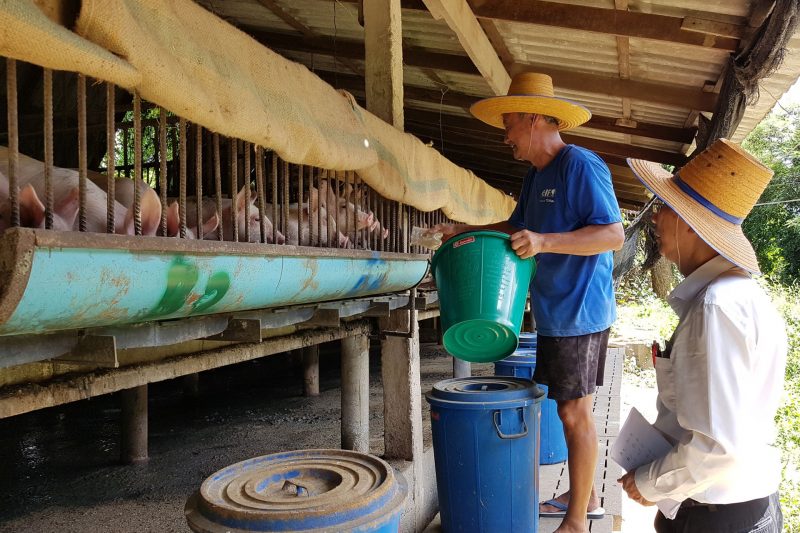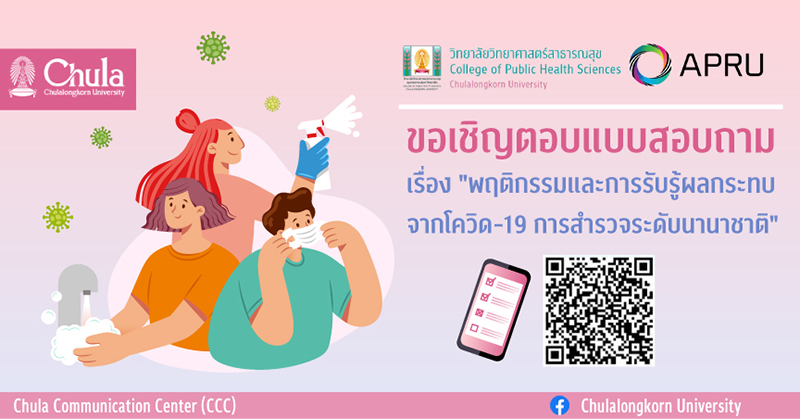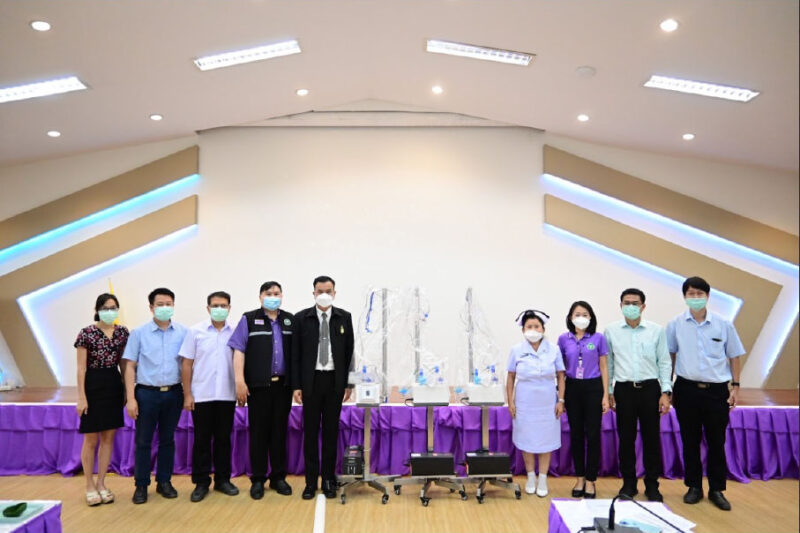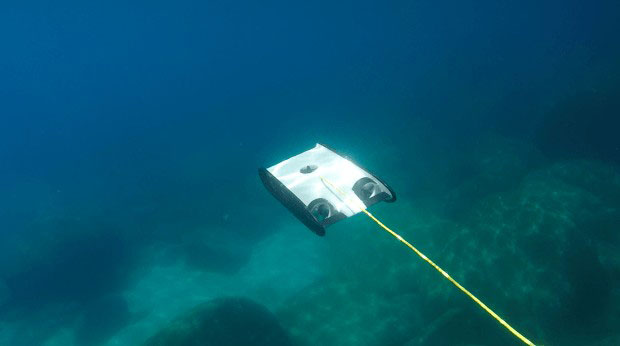Behavioral insights and perceived consequences of Coronavirus Disease 2019 (COVID-19): an international survey
The Covid-19 outbreak has continued to extend globally. Vaccination, however, could not completely stop the spread of Covid-19. The pandemic has continued to affect people’s lives greatly.
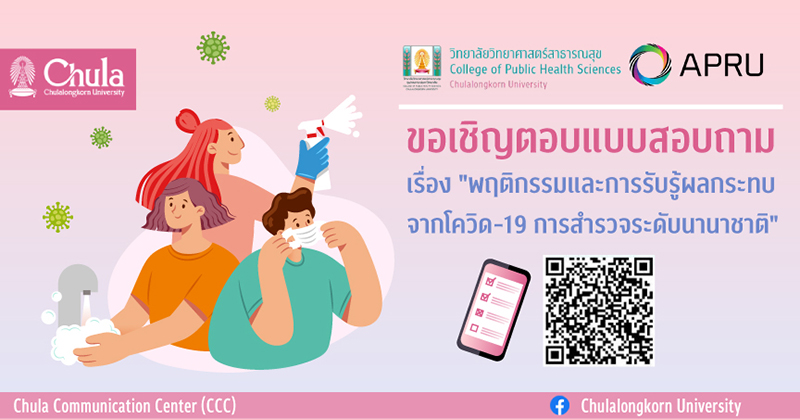
Research and data collection on Covid-19 impacts are crucial, especially data collection for regional surveys. Consequently, it was responsible to the Association of Pacific Rim Universities (APRU) Global Health Program consisting of members from 60 universities from 19 countries among the Asia-Pacific countries. Accordingly, The ARPU launched the behavioral insights and perceived consequences of Coronavirus Disease 2019 (COVID-19). Chulalongkorn University is one of the members of the project among 14 countries. In a data collection process with 8,400 participants, Chulalongkorn University handles for 600 participants divided into 2 targeted groups: Non-Communicable diseases (NCDs) and undetected NCDs. The groups are from 6 provinces in Thailand: Bangkok, Nonthaburi, Pathum Thani, Samut Prakan, Nakhon Pathom, and Samut Sakhon.
Targeted groups will be provided individually with a survey containing 183 questions divided into below 13 parts.
- Part 1. Socio-demography
- Part 2. Covid-19 personal experience
- Part 3. Health Behavior
- Part 4. Health literacy
- Part 5. Prevention own behaviors
- Part 6. Testing and tracing
- Part 7. Covid-19 vaccine
- Part 8. Resilience
- Part 9. Mental health
- Part 10. Trust and use of sources of information
- Part 11. Frequency of Information
- Part 12. Trust in institutions
- Part 13. Imply church/place of worship
Chulalongkorn University is honored to be a part of the prevention strategy planning which is beneficial to Asia-Pacific population in order to expand preventive measures against Covid-19 and pandemic in the future.
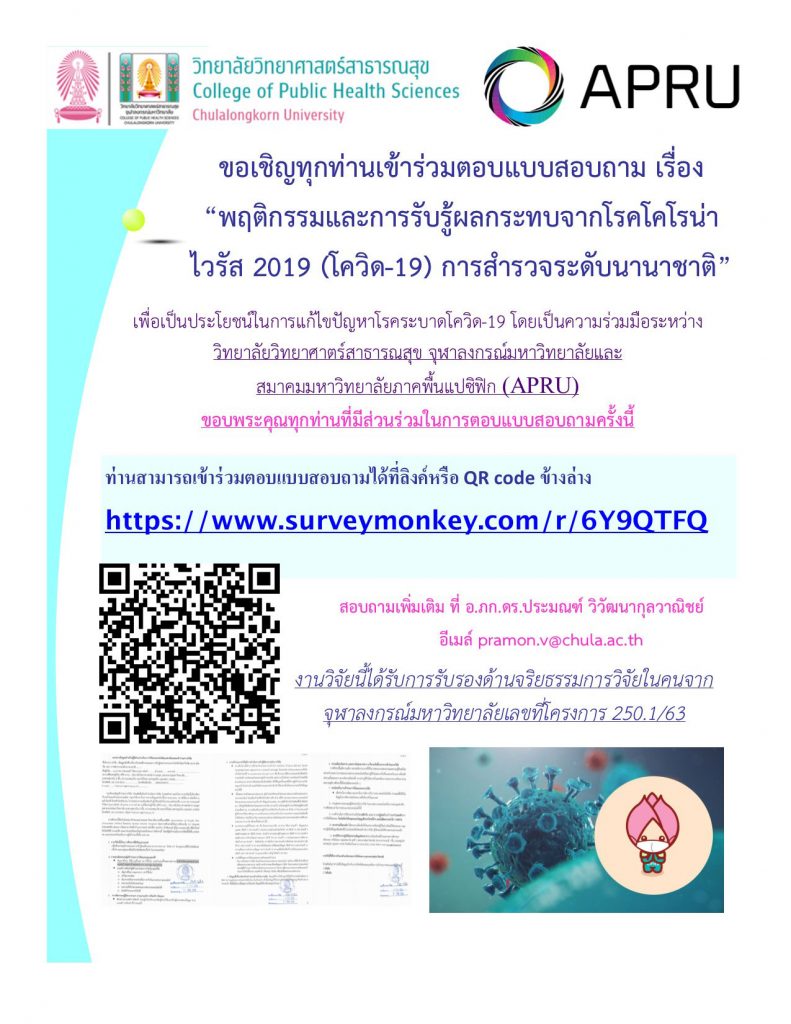
BY
College of Public Health Sciences, Chulalongkorn University
Related articles:
Others
Pig Raising with Bio-innovation
Chula veterinary professor leads research into natural alternatives to an-tibiotics

